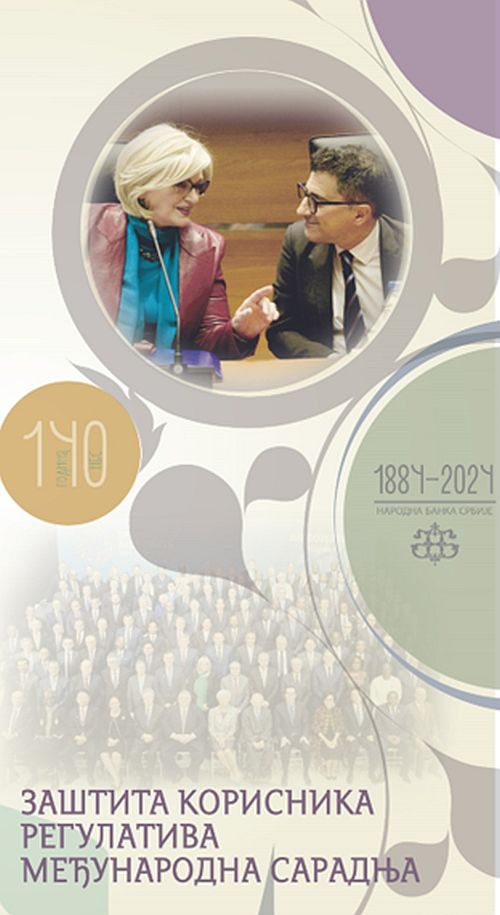The NBS’s new function of financial services consumer protection has been upgraded, resulting in significant, positive and material effects for consumers.
- The process of pre-contractual informing of clients about financial services has been improved with the aim of protecting them from risks arising from elevated interest rates and the exchange rate.
- Under the NBS decision from 2015, banks paid back to consumers around RSD 6 bn on account of the interest they charged through unilateral interest rate changes.
- Based on the NBS opinion, in the process of early loan repayment, since 2020/2021 banks have been returning to clients (reduction of outstanding debt) around EUR 5 mn per year.
- We actively monitored the behaviour of banks in the market. As some banks engaged in unfair practice, i.e. acted contrary to regulations, we prohibited them from charging a fee – as a result, their clients paid around EUR 1.8 mn less a year.
- In the past three years, specific supervisory measures made it possible to write off debt to clients in the amount of RSD 2.95 bn.
- In the last four years, the direct positive effect for consumers whose complaints were founded amounted to around RSD 108 mn, while the direct material effect arising from supervisory procedures equalled RSD 247.4 mn.
New regulatory solutions have been introduced, enhancing the financial and payment systems.
The bank resolution framework was changed, ensuring the continuity of banks’ critical functions, full protection of depositors and the least cost for the government, as in the case of Sberbank (2015 Amendments to the Law on Banks).
In cooperation with other competent authorities, the legal framework governing the prevention of money laundering was upgraded.
Significant savings were made in the application of exchange rates.
- The security and protection of Serbian citizens in the FX market have been improved, and safe and smooth exchange operations were ensured even in the midst of the pandemic.
- The long-standing issue of pricing travel packages according to banks' selling exchange rates for foreign currency or foreign cash was also resolved. Since late July 2019, banks must apply the official middle exchange rate of the dinar when stating the price and charging for travel packages abroad.
- The lowest buying/selling rate that authorised exchange offices and the public postal operator can apply when buying/selling foreign cash, i.e. euros, is capped at ±1.25% in relation to the official middle exchange rate of the dinar against the euro valid on that day, and the exchange fee is capped at 1%.
The NBS significantly contributes to Serbia's credibility in the international community.
- In its reports, the IMF stated that during the last decade, despite external shocks, Serbia has achieved impressive economic results that reflect its robust economic policy.
- As all investors have concluded, Serbia's macroeconomic fundamentals are excellent and Serbia has long deserved an investment grade. It has accomplished a lot in previous years, proving that it knows how to maintain stability and stay on the path of growth in all conditions thanks to credible policies.
- As part of the European integration process, the NBS participates in eight negotiating groups. It is a lead institution in key economic areas – Financial services and Economic and monetary policy, and a second-lead institution in the area of the Free movement of capital. All three chapters are open.
- In late 2023, a Memorandum of Understanding was signed with the People’s Bank of China on establishing a clearing arrangement and determining a clearing bank in Serbia for the Chinese yuan.
- In 2016, a bilateral currency swap arrangement was concluded with the People’s Bank of China, enabling the exchange of the national currencies of Serbia and China through individual swap transactions between the two central banks.
* The latest available data at the moment of the preparation of the brochure.
